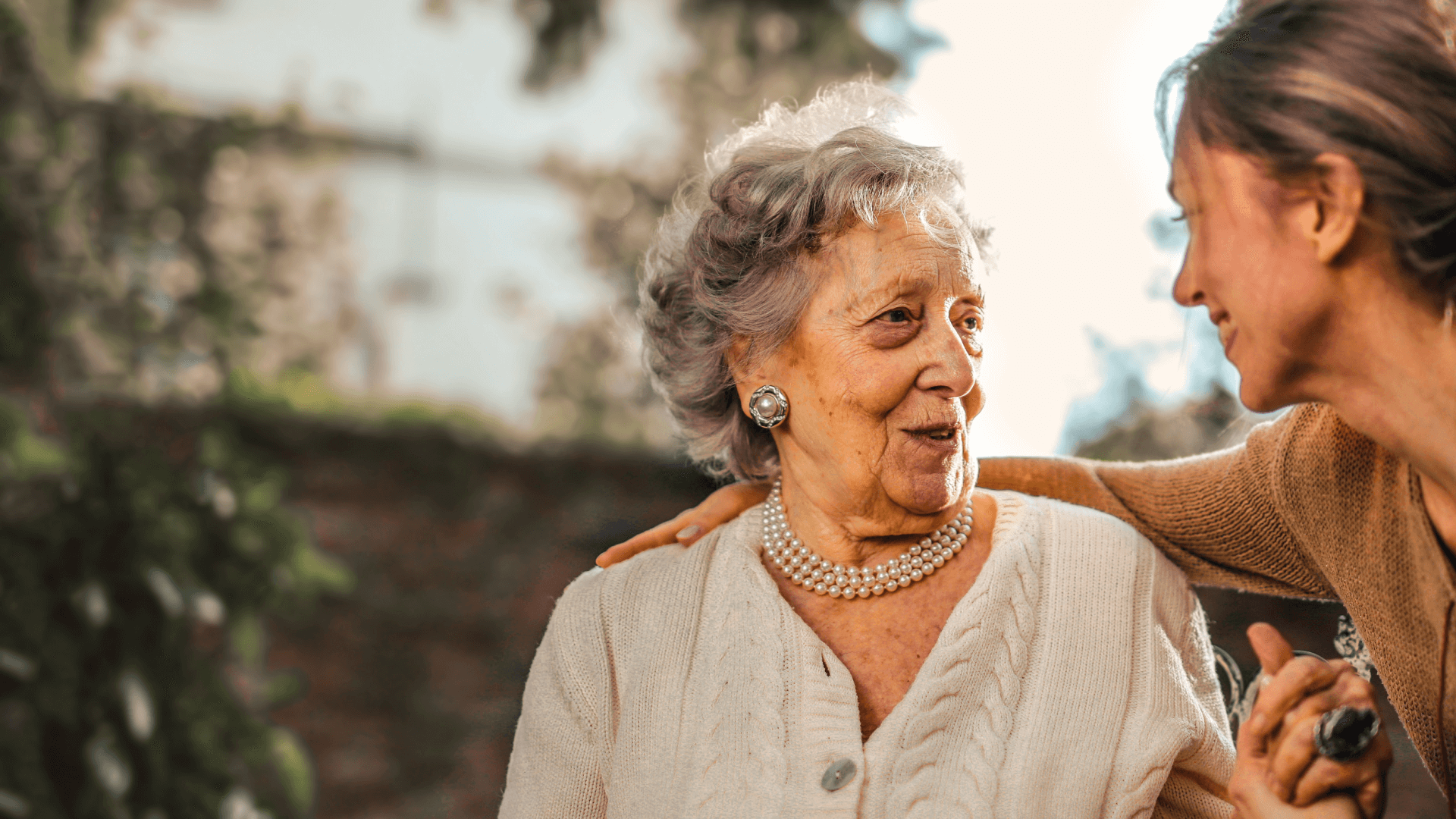This site uses services that use cookies to deliver a better experience and analyse traffic. You can learn more about the services we use in our cookies policy.
Elderly mental health advice


Robin Hill
|
Copywriter
12 May 2023
Carers Week is fast approaching (5-11 June 2023) and a lot of the emphasis is placed on carer's mental well-being. And rightly it should. As a society, we should recognise the members of our community and family that do so much for the elderly and often go overlooked. However, another important topic that also slips under the radar is elderly's own mental health.
It's silly to believe you reach a certain age and all of a sudden you're cantankerous, maudlin, anxious and deterred from human interaction. There are logical explanations behind each of these manifestations and it's important to know where they might be coming from. Mental health concerns aren't just a consequence of getting older, but a sign that you are not feeling well.
What causes mental health issues in elderly people?
There are a myriad of factors that can affect one's mental health in later life. Knowing what the reason is can help, but it's always hard to decipher as there may be a variety of causes.
Below are some of the most common causes why an elderly loved one might be struggling with poor mental health. Of course, in reality, the list of reasons is incredibly nuanced and much more complicated:
Bereavement
As you get older, bereavement may be a more common feeling, but that doesn't make it any easier or any less painful. It affects every recipient differently: from sadness to emptiness, from anger to guilt. If you or a loved one is not coping well with the grieving process it's vital to know that's completely normal. Check out the National Bereavement Service (NBS) for practical and emotional support.
Retirement
It's easy to undermine the effects that retirement can have on someone. Perhaps you have been working the best part of 40-50 years and then suddenly that is removed as part of your life. When you lose that day defining routine it can make you feel purposeless and impact your mental health.
Being a carer
As touched on briefly above, being a carer for a loved one can be an exhausting and painful experience. Of course, it can be rewarding, but it is always a massive commitment where you can neglect your own mental health over time. Even if you are not caring full-time, just an hour a day, caregiving comes in many forms.
Disability or ailing health
You can lose a lot of confidence as your health declines. The independence you once felt might be dissipating which makes you anxious about the future. Pain can also take a real toll on your mental well-being, as well as side effects of medications. Always consult your doctor as there might be viable alternatives.
Family problems
There is nothing more awkward than talking to your family about care. Deciding what to do and how to care for a loved one can cause major disagreements. Your loved one might not want care as they feel it will remove their independence. No matter how hard it is, the only way through it is to communicate. To learn more read how to navigate care and family dynamics from one of our care experts.
Financial worries
All the factors previously mentioned can lead to money problems. On top of all the other mental health issues, worrying about finances can cause a lot of anxiety. It's never too late to ask for help and get advice on protecting your finances for the future.
Does any of the above sound familiar? Poor mental health can come from a multitude of places and it's important to know you can always get support.
How to help your elderly loved one's mental health
- Stay connected with loved ones. Keeping in touch can help an elderly loved one feel less isolated and reduce feelings of loneliness.
- Keep physically active. Exercise is important for mental health at any age and elderly people should aim to stay physically active as much as possible. Walking, gardening, and low-impact exercises like yoga are all great options.
- Eat a healthy diet. Ensuring you eat healthily can help improve mental health as well as physical health. Encourage your loved one to eat plenty of fruits and vegetables, whole grains, lean protein, and healthy fats.
- Don't forget to sleep. Getting adequate rest is important for mental health and that includes your elderly loved one.
- Seek professional help. If an elderly person is experiencing symptoms of depression or anxiety, it's important for them to seek professional help from a mental health provider. There is no shame in seeking help, and it can make a big difference in improving their mental health and overall well-being.
- Engage in meaningful activities. Encourage elderly people to take part in activities that bring them joy and purpose. This can be volunteering, pursuing a hobby or spending time with loved ones.
Other insights
A collection of engaging articles, guides and insights for leading Benefits Professionals



